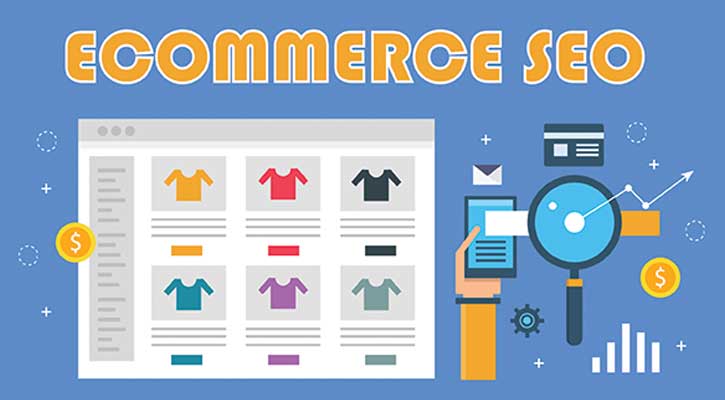Thanks to the rise of the Internet, most businesses today have a critical connection to online customers. Many companies today are exclusively online. In fact, the world’s largest retailer today is Amazon, which doesn’t have a single storefront anywhere in the world but instead does all of its business via the worldwide web.
Even brick and mortar businesses are more dependent than ever on people who search online for the types of products and services they provide.
That means that the key to connecting with your customers – regardless of whether you are a brick and mortar or online business, or what type of products and services you offer – is to optimize your web pages in order to make them easier for people to find.
Here are 7 fast, easy and effective keyword research for you to improve your search engine optimization so that you can improve the flow of customers to your company’s web pages.
1. You Need To Understand Your High Value Keywords

The Internet is built upon keywords. They are the backbone upon which the algorithms used by Yahoo, Bing, Google and other search engines are built.
Search engines use keywords to quickly and accurately determine what a web page is all about. High-powered software programs can scan thousands of documents per second and instantly pick out the keywords and phrases to determine how and where these web pages should be ranked on their search engines.
As a business owner, your job is to get your web pages ranked at the top of the search engine results pages (SERPs).
That’s because most people searching for the type of products and services you provide are going to click on the top one or two websites that show up on the SERPs that appear on their screens. If you are anywhere else than the top half of the front page of that SERP, odds are very few customers will find you.
The problem is that the best keywords for your specific product or service – regardless of what it is – are by their very essence going to be the most desirable for other business owners within your niche. That means that the rules of supply and demand dictate that the best keywords are also going to be the most expensive.
And if you don’t have the marketing budget to bid on these keywords in Google Ads and other popular paid marketing platforms, you are going to have a very hard time landing on the top of the SERPs, right?
Not necessarily!
One way to get around this dilemma is to focus on long-tail keywords which are specific keyword phrases composed of two to five words that most accurately describe your products and services.
For example, if you specialize in selling men’s winter parkas and you are based in the northernmost regions of Canada, you can load your content with a phrase like “men’s parkas in northern Canada” to get more directly to your prospective customers without having to bid on costlier – and more general – keywords such as “men’s parkas” or “winter coats”.
2. You Don’t Have To Go It Alone
Now you know that finding the best long-tail keyword phrases for the products and services you offer is the most affordable and effective way to connect with the customers you need to succeed. But how can you know which are the best keyword phrases for your specific interests?
One way is to simply brainstorm a bunch of keyword phrases and then narrow these down to the ones you think are going to be the same as those typed in by prospective customers. But this is largely trial and error and probably isn’t going to give you the results you want – at least not as quickly as you need to maximize profits.
The fastest and easiest way is to use a free keyword tool that can give you an array of keyword suggestions that already have been tested and proven to attract the highest number of prospective customers. Keyword tools are highly accurate and do an effective job of providing you with only those keywords and keyword phrases that are most likely to connect you with the customers you want.
3. The Internet Is Like The Wild West

In the corporate business world, there are a lot of regulations and laws aimed at preventing companies from stealing each other’s key information – such as product development, future intentions, and other high-value data.
But the Internet is still largely unregulated. That means that if you want to make your online business successful, all you really need to do is find the best things your competitors are doing and steal them for your own use.
This is a strategy known as competitive analysis and every successful online company does it to one extent or another. Understanding the keywords that are the most effective for attracting the highest amount of traffic to your web pages is as simple as logging on to Google or another popular search engine and looking at the keywords used by the top SERP results.
Another way is to use a keyword tool that can do all this research for you – and collate the results in a manner that can easily be understood and used for your competitive advantage.
4. Benefits Of The Google Search Console

If you have been working in online marketing for a while, you may have heard about Google Webmaster Tools. These actually don’t exist anymore. Instead, they have been converted into the Google Search Console, which essentially is a keyword tool that helps you identify the best keywords on Google to promote your products or services.
Google is by far the biggest and most popular search engine in the world, especially in English-speaking countries. So if you can land at the top of the SERPs on Google, you will automatically land on top of the Yahoo, Bing and other results pages.
When you use the Google Search Console to optimize your existing content with the most popular specific keywords and phrases for your business, you can sort keywords by clicks and then focus on the most relevant target searchers for your actual products and services.
This helps you select the specific long-tail keyword phrases that will drive the most traffic to your web pages. Include these in the content of your pages and you can instantly improve your click-through rate (CTR).
5. Location, Location, Location
Perhaps the easiest way to optimize a keyword phrase for your target audience is to include your location. For example, there are probably tens of thousands of auto repair businesses in the United States, but you want to attract mostly those customers who are in your city – or even your neighborhood.
So rather than using global keyword phrases such as “auto repair” or “auto repair services”, include specific geographic keyword phrases such as “Baltimore auto repair” or “south Baltimore auto repair services” that attract customers looking for the types of products and services you provide within the geographic area in which your business operates.
6. ‘Can You Be More Specific?’
When you us Google Search Console or another keyword tool to find your initial keyword, the next step is to use these tools to analyze the effectiveness of each specific keyword or keyword phrase to identify the ones that will bring you the most results.
Data to be considered includes:
- The number of global searches per month per keywords. Look for the biggest number.
- How many other marketers are bidding on the same keyword or keyword phrase? Look for keywords with a high number of searches but low competition.
- Search trends will tell you if the keyword or keyword phases has increased in popularity during the last month, the last year, or whatever timeline you determine
7. Where To Place Your Keywords

Once you have determined which keyword phrases you want, the next step is to determine which pages on your website you should place them in order to attract the highest amount of traffic.
These probably will include your home page and other web content that already is popular. There’s little value in driving traffic to pages such as your Privacy Policy or Terms of Use, so target only those pages that are most likely to earn you revenue – such as those that feature your products or describe the benefits of your services.
Read More: 5 Proven Strategies To Double Your Blog Traffic in a Month
You probably want to limit each page to no more than five keywords or keyword phrases each. It also makes a big difference where on your pages you should include your keywords in order to improve your page ranking.
Feature Image Credit: Provided By Author
In Post Image Credit: Provided By Author




